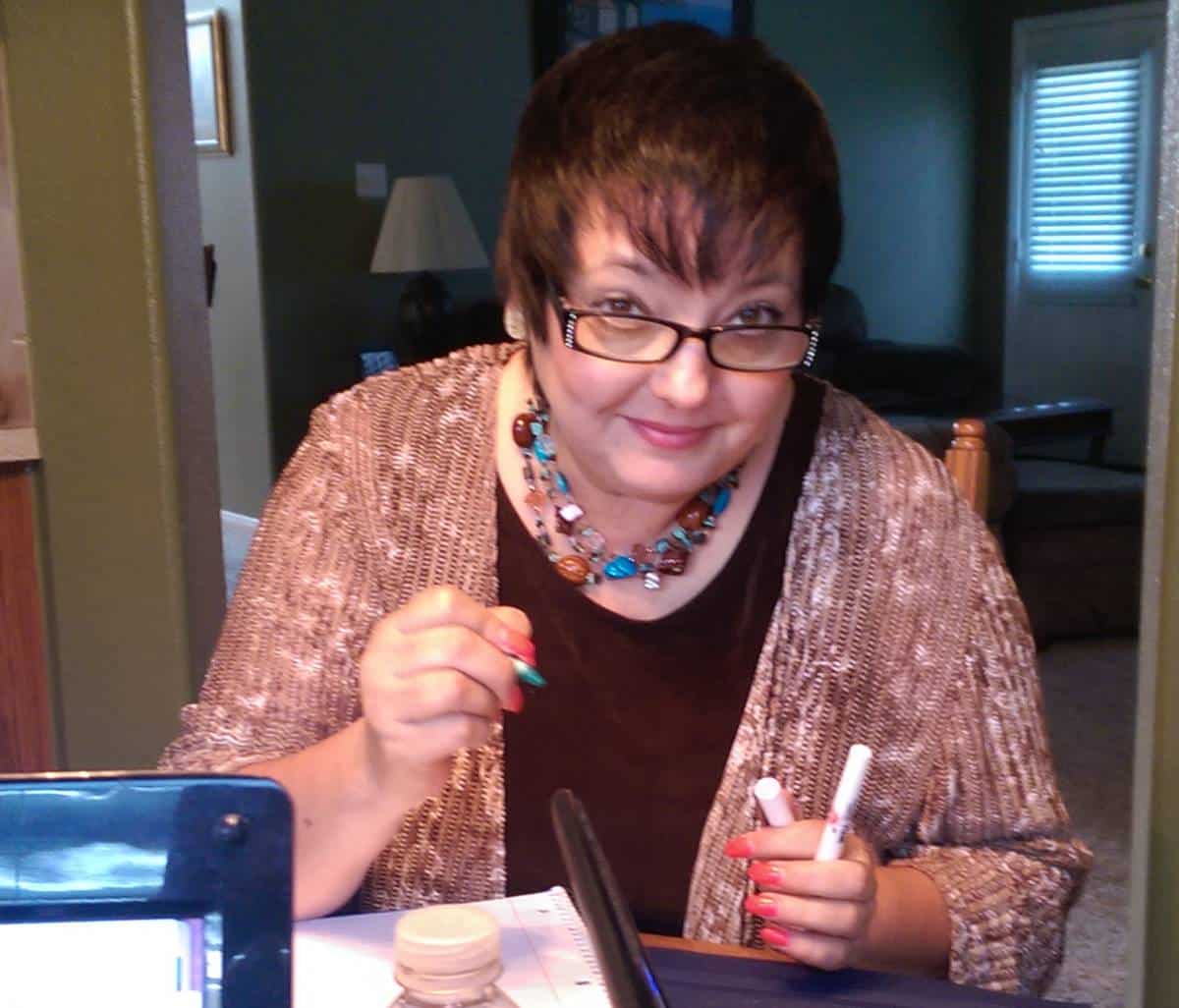
By looking into the mirror on the wall in her home office, Danielle can see “who’s in the mirror,” a useful assessment that helps her to be successful in her role making outbound cold calls to businesses to set sales appointments. Danielle explains, “The mirror reflects what is… you can see if you look upset or if you look excited about your job. People on the other end of the call can hear that come through on the phone. So, if I don’t like who’s in the mirror, I may need to get up and get a glass of water or just walk around. If I feel like I’m starting to sound kind of monotone, the mirror helps me to see what I am portraying over the phone.”
Danielle feels that keeping a mirror in her home office is part of properly equipping her home office, just as you need a computer, printer and high-speed internet to be functional, you need a mirror so that you can quickly calibrate your tone.
Danielle makes calls from her home office in the Great State of Virginia. Here’s the interview:
Q. What are some of the negatives of working from home and how do you deal with the negatives?
A. “Social isolation is a big negative for me in working from home. I am a very social person and I enjoy talking to people. In making these calls, I sometimes come across people that can be not so nice, really, it’s just part of the territory in making cold calls. So when that happens, I sometimes just look in the mirror at myself and make faces…it makes me laugh. It’s a way to help me shed the call and be fine with it, and go on to the next thing. It helps me to ‘shake it off’ and continue on with my day in a productive way. It’s important to be able to sit back down and have clarity again. In a way, having the mirror there also helps me feel less isolated. I learned about the importance of having a mirror at a previous telemarketing job. It’s kind of evolved over time and now it serves more than one purpose.”
Q: Tell us about your journey that brought you here to TeleReach Corporate. How did you find us?
A. “I’ve been selling real estate for about 15 years, however, for health reasons and also because of COVID, I needed to make a change so I started looking for something I could do from home. I started receiving the invitations to join one of the weekly information teleconferences and had a feeling the universe was trying to tell me something. When I finally attended one, I was fascinated. It reminded me very much of how I started my work career as an adult when I was 20 years old.
For 12 years, I worked for a company that was a space broker for newspapers. We sold ad space to businesses all across the country. I made 200 cold calls a day. That job experience is one of the reasons why I feel so comfortable here, and although I haven’t been here very long, I really feel like I’ve found home and that this is where I’m going to be.”
Q. What other work experience do you have that has helped you be successful with making cold calls?
A. My first job out of high school, I sold encyclopedias door to door for about 18 months. I would never do that today just from a safety point of view, but that was in a different time. They would drop us off in a neighborhood and then come and pick us up when you were done with your shift. I learned so much from that job.”
Tracie: Talk about cold calling! That is way more intimidating than making calls over the phone. That actually makes our job look pretty easy.
Q. What solutions has working from home provided?
A. Comfort. “Now I don’t have to stress about the traffic. There is a comfort and contentment to being at home and working from home. The older I get the more of a home body I am and the more I can’t stand sitting in traffic.
Pets. I’m able to take a break and take my dogs outside and I get to go outside too.
Chores. I can start prepping dinner at lunch time or whatever I need to do.
Hours. The hours with real estate were very crazy. I decided that I wanted to step back from the rat race a little bit.”
Q. What tips and advice can you give to people who are thinking about cold calling as a new career?
A. “When you are calling people, they don’t know whatever it is exactly that you are supposed to say to them. I see people getting intimidated because they worry that they are not going to say the right thing, but if you make a mistake, they aren’t going to know that you weren’t perfect. So, don’t overthink it.
Another good way to look at it is that you’re not going to see these people in person. Even if you ran into someone at the store, you wouldn’t know them and they wouldn’t know you.
We are calling people at their business, and part of their job is to help their company be better. No matter what their position is, that is still going to be part of their job. What we are doing is calling them about something that can help their business be better. The person you are calling might very well be the hero to their boss by taking the time to speak with you, by showing them how much money they will save or whatever the benefit is of the product or service. When you are in control of your own financial destiny, these are small obstacles that need to be overcome.”
Q. What about performance-based pay? What are the pros and cons?
A. “All my life, I’ve heard about how men are earning more than women and I know that the gap is closing, however, that does not apply with this job. I’ve never personally had that issue. I always wrote my own paycheck. Performance-based pay puts you on a level playing field. What you earn is what you put into the job.
About the Author

Tracie Chancellor, CEO and Founder of TeleReach Corporate, national business to business call center specializing in sales appointment setting and lead generation, based in Houston, Texas. Chancellor is an MBA graduate of the University of Houston with over 20 years hands-on sales and marketing experience, working with privately-held businesses, universities, non-profit organizations, as well as Fortune businesses in the business to business marketing space.

